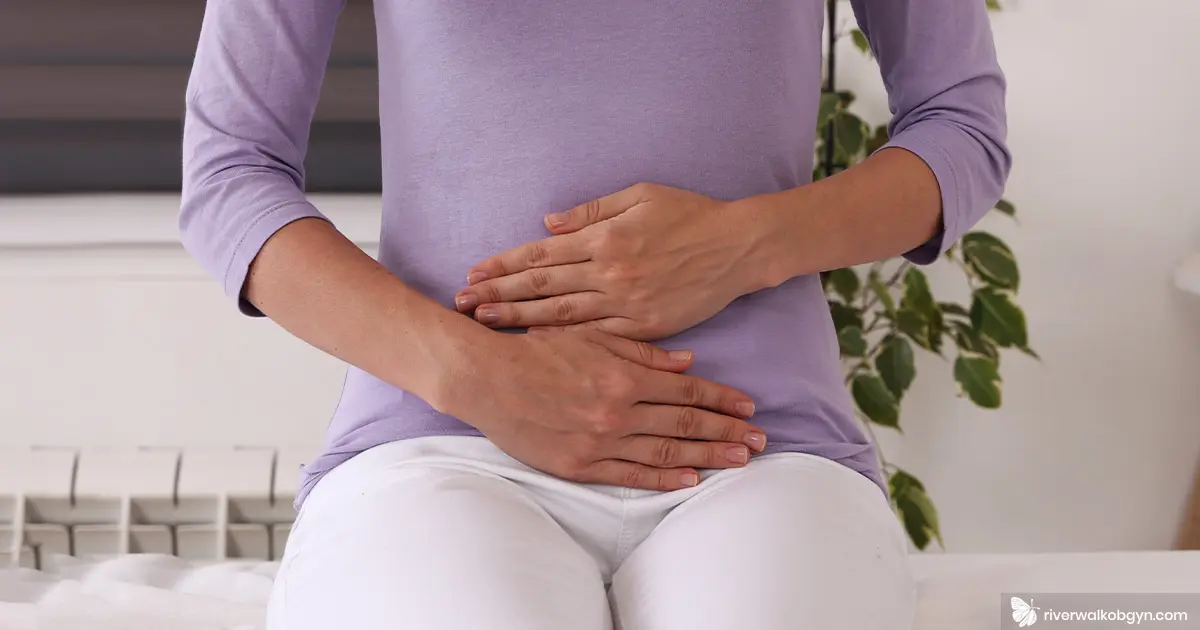Seeking Treatment for Uterine Fibroids: Options and Considerations

Uterine fibroids, also known as leiomyomas, are noncancerous growths that develop in or on the uterus. These common tumors can cause a range of symptoms, including heavy menstrual bleeding, pelvic pain, and reproductive issues. For those seeking treatment for uterine fibroids, various options are available, tailored to the size, location, and severity of the fibroids, as well as the patient’s overall health and reproductive plans.
At Riverwalk OB-GYN Women’s Health clinic in San Antonio, Texas, our team of experts is dedicated to always providing the best gynecological care possible, including treatment for fibroids. If you suspect you may have uterine fibroids or have been previously diagnosed, talk to us about potential treatment options
Understanding Uterine Fibroids
Uterine fibroids vary in size, number, and location within the uterus. They can be asymptomatic or cause significant discomfort and complications. Common symptoms include:
- Heavy menstrual bleeding
- Pelvic pain or pressure
- Frequent urination
- Difficulty emptying the bladder
- Constipation
- Backache or leg pains
Diagnostic Methods
Before pursuing treatment for uterine fibroids, a thorough diagnosis is essential. This typically involves:
- Pelvic Examination: Initial assessment to detect abnormalities.
- Ultrasound: Imaging to confirm the presence, size, and location of fibroids.
- MRI: Detailed imaging for larger or multiple fibroids.
- Hysteroscopy: Direct visualization of the uterine cavity.
- Laparoscopy: Minimally invasive procedure to view the outside of the uterus.
Why You Should Seek Treatment for Uterine Fibroids
1. Uterine fibroids can increase the risk of postpartum blood loss
Fibroids can prevent proper contraction of the uterus after giving birth, resulting in an increased risk of severe bleeding.
2. Large fibroids can increase risks during pregnancy
Almost 30% of people with uterine fibroids can experience issues during pregnancy. This includes severe problems such as premature delivery, fetal growth restriction, postpartum hemorrhage, cesarean section or miscarriage. Having fibroids evaluated before you get pregnant can help to improve your chances of a healthy pregnancy.
3. Large fibroids can cause pain
Larger fibroids can give women pelvic pressure or a growing abdomen. Some women will have frequent urination, constipation or pain during intercourse. Surgery can help these fibroid symptoms and improve your quality of life.
4. Uterine fibroids can contribute to infertility
Uterine fibroids have a high prevalence in patients with fertility issues. Treating fibroids can often help improve fertility issues.
5. Fibroids can cause chronic pain and bleeding
As fibroids grow larger, they can cause painful, heavy periods, and bleeding outside of your periods. Some women can become anemic from their increased monthly bleeding. These symptoms can often be treated with medication.
Treatment Options
- Medications
- Hormonal Therapy: Birth control pills, GnRH agonists, and other hormone-regulating drugs can manage symptoms but do not eliminate fibroids.
- Non-Hormonal Medications: NSAIDs for pain relief and tranexamic acid to reduce bleeding.
- Minimally Invasive Procedures
- Uterine Fibroid Embolization (UFE): Blocks blood supply to fibroids, causing them to shrink.
- Radiofrequency Ablation: Uses energy to destroy fibroid tissue.
- Myolysis: Laser, electrical current, or freezing used to shrink fibroids.
- MRI-guided Focused Ultrasound Surgery (FUS): Non-invasive procedure using ultrasound waves to destroy fibroids.
- Surgical Treatments
- Myomectomy: Surgical removal of fibroids while preserving the uterus, suitable for women wishing to maintain fertility.
- Hysterectomy: Complete removal of the uterus, a permanent solution for severe cases, ending the possibility of pregnancy.
- Alternative and Complementary Therapies
- Lifestyle Changes: Diet, exercise, and stress management may alleviate symptoms.
- Herbal Remedies and Supplements: Some find relief through natural treatments, but these should be discussed with a healthcare provider.
Conclusion
Seeking treatment for uterine fibroids involves understanding the condition, getting an accurate diagnosis, and exploring the array of treatment options available. Consulting with a healthcare provider specializing in fibroids can help tailor a treatment plan to your specific needs, ensuring the best possible outcomes for health and quality of life.
For more detailed information and personalized advice, schedule a consultation with your healthcare provider to discuss the most suitable treatment options for uterine fibroids.
Request an Appointment at Riverwalk OBGYN in San Antonio
Book online or call (210) 402-6022 to schedule appointment about your fibroids concerns.
You may also enjoy reading: Vaginal Birth After C-Section (VBAC): What You Need To Know




